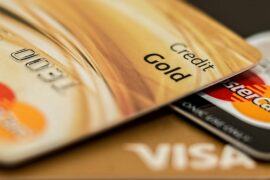This article may contain references to products or services from one or more of our advertisers or partners. We may receive compensation when you click on links to those products or services. Nonetheless, our opinions are our own.
The information presented in this article is accurate to the best of our knowledge at the time of publication. However, information is subject to change, and no guarantees are made about the continued accuracy or completeness of this content after its publication date.
When using a credit card, the transaction might seem instantaneous, but financial safeguards are often in place behind the scenes. One such measure is the credit card hold—a temporary reservation of funds merchants initiate to ensure payment coverage. These holds can subtly affect budgeting and credit availability, making it essential to understand how they operate and where they commonly appear.
- What Is a Credit Card Hold and Why Does It Happen?
- Common Scenarios Where Credit Card Holds Apply
- How Long Do Credit Card Holds Last?
- Impact on Credit Availability and Budgeting
- How to Manage Finances When Holds Are Active
- Anticipating Holds and Reducing Their Impact
- What to Do If a Hold Stays Longer Than Expected
- Frequently Asked Questions
- Recommended Reads
What Is a Credit Card Hold and Why Does It Happen?
A credit card hold occurs when a merchant sets aside a portion of your available credit rather than charging it immediately. This reserved amount ensures that the final payment can be processed once all services or transactions are completed.
These holds serve several purposes:
- Payment Assurance: Businesses use them to guarantee that funds will be available during final billing.
- Pricing Adjustments: These are especially common when charges may vary, such as with incidental expenses.
- Temporary Account Impact: Holds reduce your accessible credit but do not reflect as charges on your statement unless finalized.
While the mechanism is temporary, it can influence immediate spending power. Depending on the institution and the merchant, a hold might be released within a few days, or in some cases, longer.
Common Scenarios Where Credit Card Holds Apply
Credit card holds are frequently applied in industries where the final cost cannot be determined upfront. Understanding these use cases can help avoid unexpected limitations on available credit.
- Hotel Stays: Hotels often reserve funds to cover potential incidentals or damages. The hold may remain until checkout is complete and any additional fees are settled.
- Car Rentals: Rental companies typically require a sizable deposit, which can exceed the rental fee and last until the vehicle is returned and inspected.
- Fuel Purchases: Pay-at-the-pump systems may pre-authorize a flat amount before the fuel amount is finalized, temporarily reducing the available balance.
- E-Commerce Orders: Online retailers may place holds when items are backordered or when final shipping charges are pending.
Holds are not charges but function as a guarantee. Monitoring account activity is advisable to stay aware of what portion of credit is spendable.
How Long Do Credit Card Holds Last?
The duration of a credit card hold can vary significantly depending on the type of transaction and the policies of both the merchant and the card issuer. Below is a general reference:
| Transaction Type | Typical Hold Duration |
|---|---|
| Hotel Stay | Until checkout or 3–7 days |
| Car Rental | Until return; up to 30 days |
| Gas Station | 1–5 days |
| Online Orders | Until shipping is confirmed |
It’s important to note that while most holds resolve automatically, certain factors—such as weekends, holidays, or merchant delays—may extend this timeframe.
Voted "Best Overall Budgeting App" by Forbes and WSJ
Monarch Money helps you budget, track spending, set goals, and plan your financial future—all in one app.
Get 50% OFF your first year with code MONARCHVIP
Impact on Credit Availability and Budgeting
Although a credit card hold is not an actual charge, it temporarily limits available credit. This can influence your purchasing power and, in some cases, affect your credit utilization ratio, which plays a role in credit score calculations.
| Scenario | Typical Hold Amount | Effect on Available Credit |
|---|---|---|
| Hotel Reservation | $100–$300 per night | Reduced credit until release |
| Car Rental | $200–$500+ | Reserved until vehicle is returned |
| Gas Station | $50–$150 | Temporarily held until transaction clears |
Understanding this dynamic is key to managing your finances efficiently, particularly during travel or high-expense periods.
How to Manage Finances When Holds Are Active
Planning around holds requires careful attention to available credit and thoughtful spending. Consider the following strategies:
- Monitor Your Statements: Regular reviews of pending transactions help prevent surprises and maintain awareness of your true available balance.
- Maintain a Buffer: Extra room on your credit limit can offer flexibility when a hold is applied unexpectedly.
- Communicate with Merchants: Before committing to a purchase or reservation, inquire about their hold policy and duration.
- Diversify Payment Methods: Using separate cards or debit options for services likely to apply holds can reduce credit disruptions.
Such habits enhance financial control and reduce the stress of encountering unexpected account limitations.
Anticipating Holds and Reducing Their Impact
Holds are a standard part of many transactions, especially in the service sector. By anticipating them, you can maintain financial stability even when your balance appears temporarily reduced.
| Scenario | Hold Range | Duration Estimate |
|---|---|---|
| Hotel Check-In | $50–$200 per night | 3–7 days post-checkout |
| Car Rental | $200–$500+ | Until final vehicle return |
| Fuel Purchases | $1–$150 | Typically 1–2 days |
Proactive communication with merchants and understanding the nature of these authorizations will help ensure smoother financial planning.
What to Do If a Hold Stays Longer Than Expected
On occasion, a hold may remain beyond its anticipated release time. Here’s how to respond:
- Contact the Merchant: Clarify the status of the hold and request confirmation that the final charge has been processed.
- Reach Out to Your Card Issuer: Financial institutions can provide specific timelines or remove expired authorizations upon request.
- Document the Timeline: Record when the transaction occurred and your communication with the merchant.
- Consider Escalation if Needed: If the hold is causing financial hardship or appears to be in error, consider filing a formal dispute with your issuer.
While most holds are routine, remaining proactive ensures minimal disruption to your financial flow.
Frequently Asked Questions
What is a credit card hold?
A temporary reservation of funds initiated by a merchant to ensure payment coverage before the final amount is charged.
Where are credit card holds commonly applied?
Hotels, car rental agencies, gas stations, and some online retailers frequently apply holds when the final total isn’t known upfront.
How long do holds usually last?
Duration varies by merchant and card issuer, typically ranging from a few days to several weeks in some rental or hospitality contexts.
Do credit card holds affect my credit score?
While holds do not show as charges, they reduce your available credit, which may impact your credit utilization ratio if your credit is near its limit.
Can I prevent a credit card hold?
Holds are standard in certain industries and cannot always be avoided. However, asking about merchant policies and using alternate payment methods can help minimize their impact.
What should I do if the hold remains too long?
Start by contacting the merchant. If the issue remains unresolved, your credit card issuer can provide guidance or intervene to remove the hold.

Reviewed and edited by Albert Fang.
See a typo or want to suggest an edit/revision to the content? Use the contact us form to provide feedback.
At FangWallet, we value editorial integrity and open collaboration in curating quality content for readers to enjoy. Much appreciated for the assist.
Did you like our article and find it insightful? We encourage sharing the article link with family and friends to benefit as well - better yet, sharing on social media. Thank you for the support! 🍉
Article Title: What Is a Credit Card Hold, and When Should You Expect One?
https://fangwallet.com/2025/05/16/credit-card-hold/The FangWallet Promise
FangWallet is an editorially independent resource - founded on breaking down challenging financial concepts for anyone to understand since 2014. While we adhere to editorial integrity, note that this post may contain references to products from our partners.
The FangWallet promise is always to have your best interest in mind and be transparent and honest about the financial picture.
Become an Insider

Subscribe to get a free daily budget planner printable to help get your money on track!
Make passive money the right way. No spam.
Editorial Disclaimer: The editorial content on this page is not provided by any of the companies mentioned. The opinions expressed here are the author's alone.
The content of this website is for informational purposes only and does not represent investment advice, or an offer or solicitation to buy or sell any security, investment, or product. Investors are encouraged to do their own due diligence, and, if necessary, consult professional advising before making any investment decisions. Investing involves a high degree of risk, and financial losses may occur including the potential loss of principal.
Source Citation References:
+ Inspo
There are no additional citations or references to note for this article at this time.












































